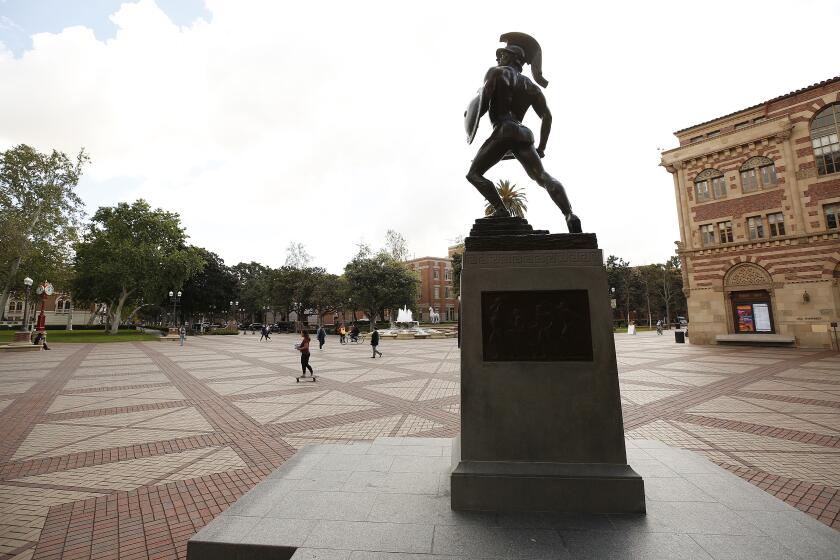A thorough review of L.A. County’s jails
Los Angeles County’s jails have been under federal oversight for more than 25 years, yet complaints of brutality persist. In the last two years alone, some 30 sheriff’s deputies have been disciplined for beating inmates or covering up abuse. And last week, a federal probe led to criminal charges against one jailer, with more likely to follow. So what role can the special commission created late last year by the Board of Supervisors have in sorting out this mess?
As it begins its investigation, it would do well to review the work performed in 1991 by the Christopher Commission, which helped transform the Los Angeles Police Department and restore its reputation after the Rodney King beating. That commission focused on identifying the structural flaws in the department.
Similarly, the jails commission could determine whether the deputy culture inside the lockups is part of the problem. It could consider whether rookie deputies, whose first job out of the academy is as jailers, receive appropriate supervision. And it could identify the shortcomings that allow excessive use of force to go unpunished.
Just as important, the commission’s members — four retired judges, a pastor, a police chief and an expert on jails — ought to ensure that their work is as public and transparent as possible. Already, some on the panel have suggested that deputies should be allowed to testify anonymously, or even be granted immunity from criminal prosecution. That’s a bad idea. The commission has no authority to offer immunity. Moreover, even anonymous or compelled testimony could compromise the concurrent and ongoing FBI investigation.
The commission can rely on former officials for testimony, as the Christopher Commission did. It can also consult a wealth of public statements and documents. Robert Olmsted, a retired commander, told The Times last year that he repeatedly tried to warn Sheriff Lee Baca about shoddy use-of-force investigations and deputies who were forming aggressive, gang-like cliques. The commission could review reports from inmates, chaplains and civilians who say they witnessed or were subject to abuse, or consult attorney Merrick Bobb’s reports to the Board of Supervisors that detail the department’s troubled management of the jails.
Ultimately, fixing the jails is Baca’s job. But though the commission’s influence is extremely limited, its findings need not be.
More to Read
A cure for the common opinion
Get thought-provoking perspectives with our weekly newsletter.
You may occasionally receive promotional content from the Los Angeles Times.










